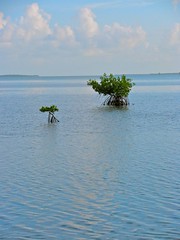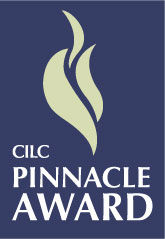Florida Master Naturalist Program
Mote Marine Laboratory will offer the Coastal Systems Module in August, 2014 (dates to be announced).
- Classes will be held at in the Marine Education Resource Center (MERC) on Mote's Sarasota, FL campus.
- The fee for the class is $225 and spaces are limited.
Overview
The objective of the Florida Master Naturalist Program is to prepare persons to share their knowledge with others, to act in a positive manner, to help others feel a greater connection to the land/sea and to help others to develop their own personal environmental ethics. Information on the ecology of Florida's systems is an integral part of the program, but we do not attempt to create experts in botany, herpetology, or any other discipline. Rather, we hope to initiate what is for many a life-long process of learning, of observation, and of sharing with others. Florida Master Naturalist Program students will increase their knowledge of Florida's natural systems, of the plants and animals that depend upon those systems, and of the role of humankind in shaping our past, of determining our future, and as stewards of the land.
Coastal Systems Module Overview
Through classroom, field trip, and practical experience, this Module provides instruction on the general ecology, habitats, vegetation types, wildlife, and conservation issues of Coastal Systems in Florida - Coastal Uplands, Estuarine, and Nearshore Marine Environments. The program also addresses society's role in coastal areas, develops naturalist interpretation skills, and discusses environmental ethics.
The total training consists of 40 contact hours, the scheduling of which will vary among different Instructors. The only requirements of students are enthusiasm, attendance, and completion of group final projects. Classroom learning includes four instructional videos and 12 presentations.
Student Requirements
FMNP students include anyone over the age of 18 interested in learning more about Florida’s environment. The only other requirements of students are enthusiasm, attendance, and completion of group final projects. Those who benefit include environmental educators, natural resource managers, volunteers, eco-tour guides, teachers and anyone wishing to expand their knowledge of Florida’s natural world. Professionals and teachers have obtained CEUs and in-service credit.
Attendance: To successfully complete an FMNP course, students must not miss more than one classroom presentation and one field trip. The names of students who successfully complete FMNP training will be maintained in a University of Florida/IFAS database. The honor roll of students who have attained Florida Master Naturalist certification are also published on the FMNP website for public view.
Final Projects
The capstone requirement for the FMNP Core Modules is the Final Project. There is no final exam used to determine whether students have successfully completed the program; instead, we require enthusiasm for learning, attendance of classes and field trips, and completion of a Final Project that conveys some type of educational message consistent with the course topic. Final Projects accomplish several objectives. First, they require the synthesis of information into an interpretive and educational product. Second, they promote additional learning by enabling students to gain experience in finding information. Final Projects also provide students experience in presenting information to an audience. Student groups, therefore, are expected to conduct additional research for information used in their Final Projects. Sources of additional information may include their Student Workbooks, the internet, and any other source they deem appropriate.
Options for Final Projects are Limitless
Final Projects may be presented as interpretive walks, displays, guide books, slide presentations, skits, brochures, and so forth. Literally, any interpretive or educational project that provides an environmental education message qualifies. Students should use their imagination, experience, and personal interests to produce their Final Projects. Final Projects completed as group projects are encouraged. Final Project presentations are approximately 20 minutes, plus 5-10 minutes for questions, discussion, and breaks. Students will have one week between the last day of regular classes and the Final Project group presentations to allow students time to prepare their final projects. All Final Project materials, including photos, sounds, etc., may be used for educational or promotional purposes by the FMNP or FMNP sponsoring organizations. Final Projects are fun and help prepare students to share information with others.

